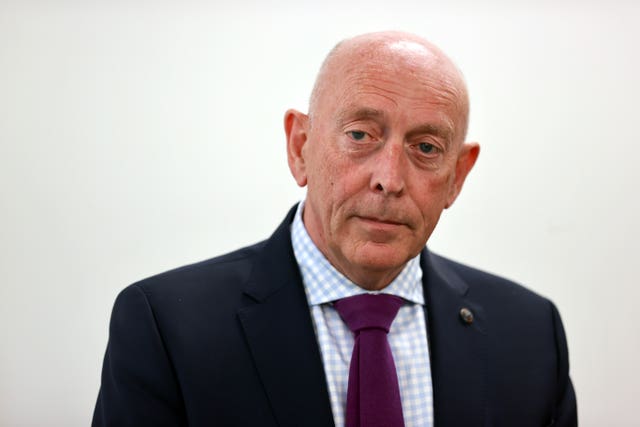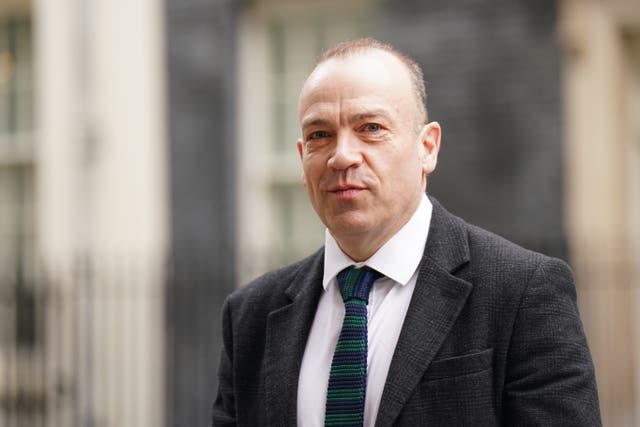
The man taking over responsibility for investigating unresolved Troubles deaths has challenged politicians in Northern Ireland to “step up” and support his work.
Peter Sheridan is commissioner for investigations at the new Independent Commission for Reconciliation and Information Recovery (ICRIR), which has become operational.
Mr Sheridan, a former senior police officer, said dealing with legacy was the “outstanding issue” still to be resolved from the Troubles.

The ICRIR was created by the Government’s Legacy Act which received royal assent last year despite widespread opposition from political parties, victims’ organisations in Northern Ireland and the Irish government.
From Wednesday, all civil litigation and inquests into Troubles deaths will be stopped.
Prosecutions that are currently ongoing will continue to conclusion.
Bereaved families, victims and certain public authorities can request the ICRIR carry out an investigation.
The commission can refer cases for prosecution and can also deliver findings reports based on the balance of probabilities.
The ICRIR will open dedicated telephone, email and postal routes for victims to contact it about investigating their case.
But Troubles victims and survivors have been heavily critical of the Legacy Act, which they believe is shutting down access to justice and truth.
In an interview with the PA news agency, Mr Sheridan said he was not naive about the “contested nature” of the legislation which created the ICRIR.
He added: “Given time, we hope that by dealing with victims and survivors, by putting them front and centre right the way through the process, hopefully that starts to build confidence in that community as they talk to each other.
“But it also requires other people to step up, to start to support the commission, including our politicians.”
Mr Sheridan said he understood that some people would continue to “sit on the sidelines” while legal challenges to the Legacy Act played out.
He added: “But then the question is, once those things are dealt with, what then?
“At some stage, people who constantly say they are there to support victims and survivors then have to demonstrate what they are going to do about it.
“I mean across the board, state agencies, political parties are going to have to step up and demonstrate how are they going to support the work of the commission to get information for victims and survivors.”
Mr Sheridan formerly served as a police officer in the RUC and PSNI and as chief of the peacebuilding organisation Co-Operation Ireland.
He said: “This (legacy) is I think the outstanding issue of the conflict and we have to resolve this in this generation.
“Young people I talk to, this is not their conflict, yet we are foisting it on them because we don’t have the capacity, we haven’t had any agreement how we are going to deal with this and we are leaving it to another generation.
“Inter-generational trauma is starting to happen.
“Having argued all of this through Co-operation Ireland, I can’t walk away and say that is somebody else’s job.
“I hope when we get through the politics, get through the bumps of it, over the next year or 18 months, I think there will be a settling down and then it is a matter of are people prepared to step up and help the commission.”

Northern Ireland Secretary Chris Heaton-Harris said he was confident the commission could deliver results if it is “given an opportunity to demonstrate its effectiveness”.
He said: “It is very welcome news that the commission can now proceed to conduct reviews on behalf of families and provide vital information about Troubles-related cases.
“Individuals and families now have access to a dedicated, well resourced and effective mechanism to take forward the task of reviewing their case.
“I encourage all those who continue to seek information, accountability and acknowledgment regarding what happened to them or their loved ones to engage wholeheartedly with the ICRIR.
“In establishing the independent commission, we are doing something that has eluded successive governments since 1998. That is, delivering robust and effective mechanisms for addressing the legacy of the past, and providing more information and answers to families.”
The commission’s case support team can be contacted via telephone on 028 9036 2093, by email at Casesupport@icrir.independent-inquiry.uk and by post at ICRIR, FREEPOST
Telephone lines will be open between 10am and 4pm Monday to Friday, apart from public holidays.


Comments: Our rules
We want our comments to be a lively and valuable part of our community - a place where readers can debate and engage with the most important local issues. The ability to comment on our stories is a privilege, not a right, however, and that privilege may be withdrawn if it is abused or misused.
Please report any comments that break our rules.
Read the rules here